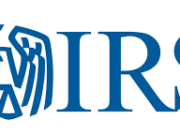The Treasury press release is vague on key details that won’t be known until a draft rule is released. The devil will be in the details. The proposed rule is right to recognize that advocacy nonprofit groups can conduct political activities. Participation in our nation’s elections is vitally important to efficient and effective government and advances the legitimate public policy goals of social welfare groups, labor unions and trade associations. The ultimate percentage that can be devoted to these activities – which we believe in fact do constitute “social welfare” activities – will tell us whether this is an effort to clarify the law or simply to smother political speech.
Additionally, the IRS must scrap the “facts and circumstances” test. While the press release indicates that the IRS is moving towards clearer standards, it is not clear yet whether the proposal ends this test or not.
Much of the rule is in the right direction. Political activity should be defined as supporting candidates and parties with contributions or expressly advocating for candidates.
However the proposal goes seriously off track when it seeks to count candidate-related political activity to include “Communications that are made within 60 days of a general election (or within 30 days of a primary election) and clearly identify a candidate.” Such communications are protected issue speech and should not be limited. Indeed, such communications could solely advance, and in fact long have solely advanced, activities that are clearly grassroots lobbying or educational activities that have always qualified as activities that advance social welfare.
For example, in the last Congress, during the 60-day period prior to the general election, many important floor votes were taken on controversial legislation, including votes on an alternative to sequestration, an omnibus appropriations bill, reauthorization of the Foreign Intelligence Surveillance Act, energy regulations and work requirements for welfare recipients. It is absurd to categorize ads on such legislation as per se political activity simply because an incumbent is mentioned in the communication. Many social welfare groups are active on a single issue and are at the mercy of the congressional schedule. To take another example, gun control groups hope to obtain a vote in this Congress on legislation they support. If they are able to force a vote in September 2014, this rule would force them to the sidelines or make their campaign much less effective. Other groups publish nonpartisan voter guides and pay for Internet advertising to get these online guides in front of as many voters as possible in the weeks leading up to the election; this activity would be strongly discouraged or effectively banned by this rule.
Such communications during this 60-day window should be permitted not only for 501(c)(4) groups, but also for 501(c)(3) groups. There is no basis for including such communications in any test of political activity.
The press release also indicates some regulations will govern voter guides, voter registration and candidate appearances. The IRS and Treasury Department should avoid reinventing the wheel and causing further confusion in this area. A better approach would be to reference existing FEC regulations. Additionally the Federal Election Campaign Act says “the [Federal Election] Commission and the Internal Revenue Service shall consult and work together to promulgate rules, regulations, and forms which are mutually consistent.”
We hope for a constructive dialogue with the Treasury Department and the IRS toward a clearer and fairer approach to the regulation of nonprofit activity.














